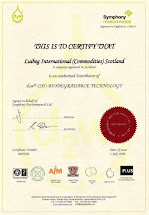Hindustan Times
Avishek G Dastidar
New Delhi, May 10, 2010
Plastic bags are back with a vengeance. Shoppers across Delhi are once again going home with colourful plastic bags full of goodies that they’ve bought.
The shopkeepers have also started stocking them again in blatant violation of the plastic bag ban in place since January 2009. The Delhi government, meanwhile, seems to have turned a blind eye to it.
The latest records filed at the courts show that the Delhi Pollution Control Committee (DPCC) could not spot more than 115 people using or selling plastic bags in the past 15 months in this city of nearly 2 crore people.
“Enforcing the ban in shops and unorganized sectors has been a problem,” admitted Dharmendra Kumar, Delhi Environment Secretary. “We have fined a number of people but we can’t have constant policing.”
With the government dragging its feet on the ban, one of Delhi’s biggest environmental policy interventions in years—after the introduction of Compressed Natural Gas-based public transport a decade ago—has died a slow death.
While the government claimed that the plastic bags had been weeded out of malls, a random check showed markets in Defence Colony, Janak Puri, INA market, Gole Market and Bengali Market were, as expected, teeming with violators.
Apart from grocery stores and sweet shops, meat shops and fruit vendors mushrooming across localities are bringing the bag back in circulation.
The Delhi government, too, goofed up in its reading of the laws governing the ban.
Sources said the DPCC had earlier asked the MCD to fine violators as per the Delhi Municipal Corporation Act, 1957. But towards the middle of last year, the DPCC realised that the MCD could not fine anyone as the Environment Protection Act, 1986, which governs the ban, empowers only the state pollution boards for the job.
Thanks to this mix up, the MCD’s citywide reach could not be utilised to penalise violators.
“The government does not appear serious about the ban,” said Vinod Jain, the petitioner who had won the long-drawn case against the “plastic lobby” to force the ban on Delhi. Traders, who circulate the bags through their shops, said the government lost out to the well-organised network of the plastic bag manufacturers.
“Every morning, delivery boys come to the markets and deliver the plastic bags. For traders, it is a matter of availability of a cheap packaging material. Where are the alternate bag makers in this race?” said Praveen Khandelwal, secretary general of Confederation of All India Traders, the biggest traders’ organization in Delhi.
The matter is now in the Supreme Court, where plastic manufacturers have said the ban was illegal, as the government did not carry out mandatory public hearing before the ban.
Monday, 10 May 2010
Subscribe to:
Comments (Atom)


